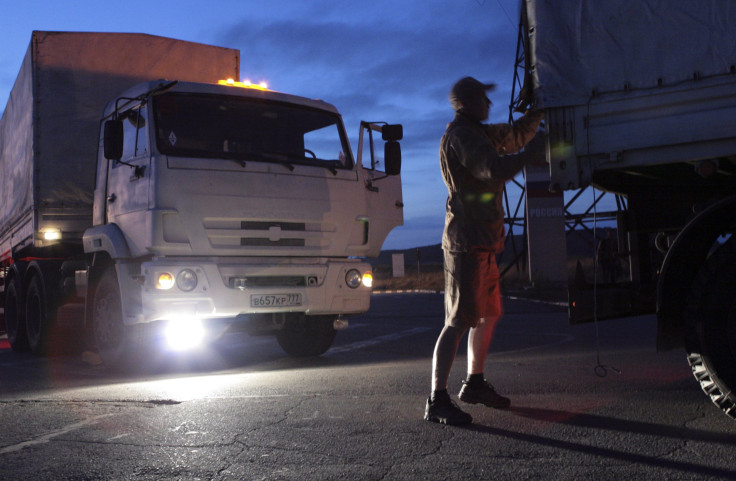Shelling Continues In East Ukraine Despite Fragile Cease-Fire Said To Benefit Russia

A fragile cease-fire deal reached this month between Ukraine’s government and pro-Russian separatists was under threat Sunday as neighborhoods in the eastern Ukrainian city of Donetsk were shelled. The target of the attacks appears to be the city’s airport.
Ukrainian troops fought off an overnight foray by about 200 rebels attempting to take control of key infrastructure, Volodymyr Polyovyi, a representative of Ukraine’s National Security and Defense Council, told the Associated Press.
BREAKING: Sound of GRAD shelling big flashes to the right hand side of the smoke plume #Donetsk airport #ukraine pic.twitter.com/xf3c52btqA
— Robbie Wallis (@sterion75) September 14, 2014Russia wants Ukraine to remain neutral in its relations with the West, especially with respect to NATO, which Russia views as a threat. A lasting stalemate would create a situation similar to those in Georgia and Moldova, where Russia maintains control over breakaway regions whose struggles for independence have garnered international support.
“The cease-fire and peace roadmap signed by Ukraine, Russia, and the separatist leadership on 5 September is likely to be used by Moscow as a means of ensuring its key goals in Ukraine are met, although the deal remains highly fragile,” IHS Jane’s Intelligence Review said in a recent report on the situation.
The cease-fire is still being largely recognized, despite pro-Russian separatist bombardments in Donetsk as well as in Mariupol, 70 miles to the south on the coast of the Sea of Azov. But in other areas of eastern Ukraine the cease-fire has led to significant reductions in fighting.
Russian aid convoy reaches Luhansk. The trucks seem to be fairly full on this occasion. Mostly with canned beef. pic.twitter.com/lFXWS3PUh2
— pete_leonard (@pete_leonard) September 13, 2014Life was returning to a semblance of normality in Luhansk, a city of 150,000 about 93 miles to the northeast of Donetsk that had been bombarded for a month as Ukrainian troops unsuccessfully battled the rebels for control of the area, including the city’s airport. Now that Ukraine has abandoned the fight there under the terms of the cease-fire agreement, pro-Russian troops were seen celebrating on the streets Sunday.
Meanwhile, convoys of Russian aid poured into Luhansk. An AP reporter reported Saturday she saw water bottles in one aid-distribution center carrying the logo of the Liberal Democratic Party of Russia, an ultranationalist party founded in 1991 by the controversial Vladimir Zhirinovsky. The Night Wolves, a nationalist Russian motorcycle club, was reportedly seen cavorting with locals in Luhansk Sunday:
Luhansk city day: Electricity turned on for 1st time in 6 weeks & Night Wolves biker gang brought 'Mad Max' truck pic.twitter.com/6vQQb1t5Lf
— Alec Luhn (@ASLuhn) September 14, 2014© Copyright IBTimes 2024. All rights reserved.












